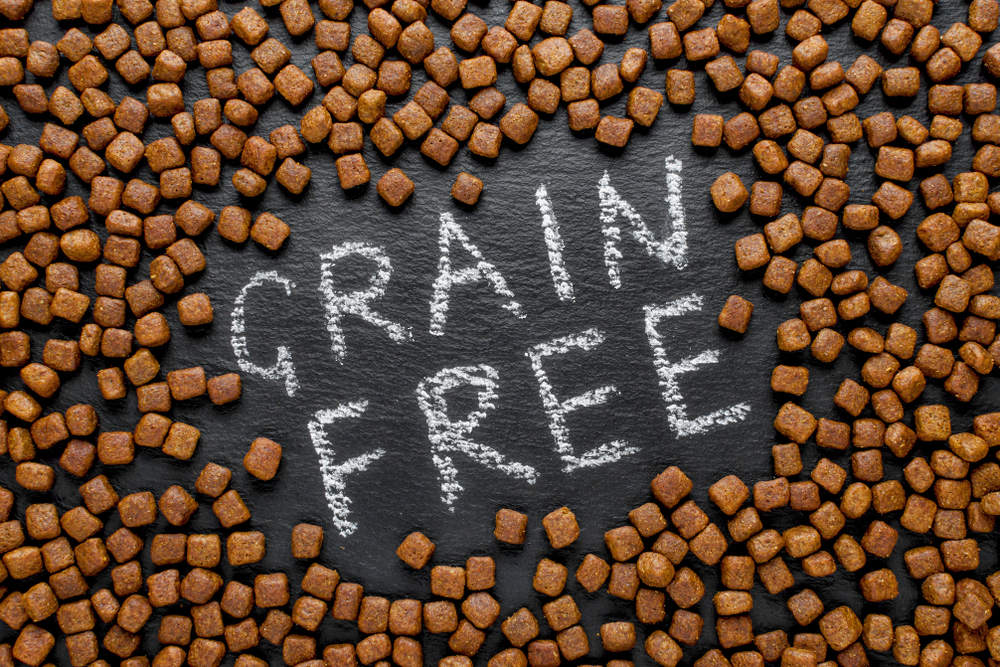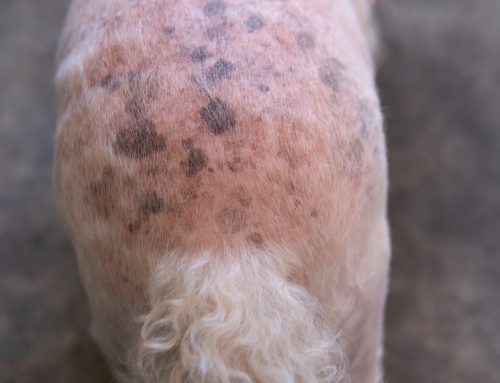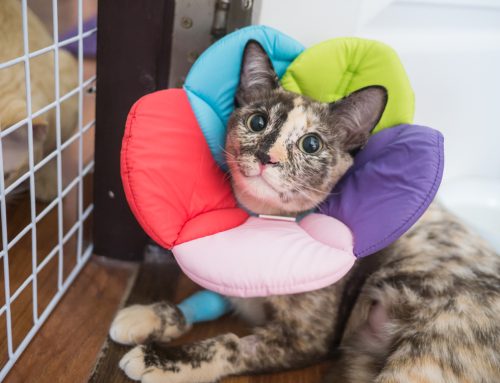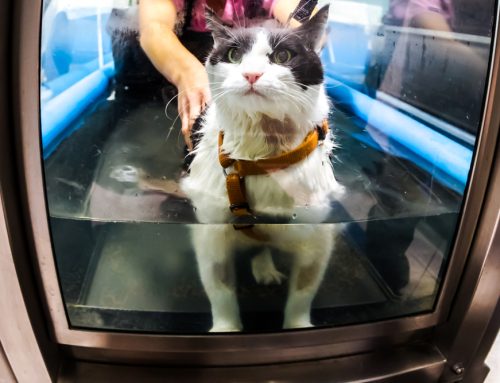As a pet owner, you want to feed your four-legged friend the best, and marketing professionals take every opportunity to tell you grain-free diets are the way to go. However, those marketing gimmicks can lead you astray. Instead of relying on them to guarantee you’re feeding your pet an appropriate diet, schedule a nutrition consultation with your Animal Medical Center veterinarian. To help you determine the truth about grain-free diets for pets, check out the following common myths we’ve unraveled.
Myth: Pets are natural meat-eaters, so they should not be fed grains
Truth: Although your pet’s ancestors may have consumed meat as the bulk of their diet, they were certainly capable of digesting fruits, vegetables, and grains. Consider the wolf who would typically eat their prey’s stomach first, which would contain various plant material typical for a herbivore’s diet. And, with centuries of domestication and evolution, our modern-day pets are even more proficient at digesting foods other than meat. To date, 10 key genes have been identified that demonstrate our domesticated dogs’ increased ability to digest starch and fat compared to their ancient predecessors.
The processing commercial pet food undergoes also contributes to its digestibility. The cooking phase makes the starch easier to digest and increases its bioavailability. That means your pet’s grain-containing food should be simple to digest.
Myth: Grain-free diets are healthier for my pet
Truth: While people can suffer from gluten intolerances, a true gluten allergy in pets is almost unheard of, so there is really no reason to feed a grain-free diet to a healthy pet. In fact, a recent study has shown a potential connection between grain-free diets and dilated cardiomyopathy in dogs. Dilated cardiomyopathy (DCM) is a disease of the heart muscle that causes an enlarged heart and irregular heart rhythm. The study also found that dogs on boutique small batch diets—which are often grain-free—or exotic meat- or plant-based diets had an increased risk for DCM development. While further studies are needed to evaluate the link between these diets and heart disease, it’s best to avoid grain-free diets unless your pet has a medical reason for needing one.
Myth: Corn is a filler ingredient in pet food
Truth: Lately, corn has been portrayed as a low-quality “filler” ingredient in pet foods and implicated as a culprit in food allergies. In reality, whole grains are excellent inexpensive protein, complex carbohydrate, and fiber sources. Corn provides a nutritious, affordable carbohydrate source for energy, essential amino and fatty acids for a healthy immune system, skin and hair coat, and a variety of other important nutrients. In addition, corn is typically easily digested, especially after being processed for pet foods, and very rarely causes a food allergy.
Myth: Corn is the leading cause of food allergies in pets
Truth: Contrary to popular belief, corn is not a highly allergenic food. More often, pets develop an allergy to the protein source in their diet. Chicken, lamb, beef, fish, dairy, and soy are much more likely to be allergenic ingredients, although true food allergies in pets are rare. If your pet has a food allergy, a grain-free diet likely won’t help them. Instead, a food containing a novel protein (i.e., one they haven’t eaten before), or a hydrolyzed protein (i.e., one that has been broken down into unidentifiable components to avoid recognition and attack by the body) is the best option.
Myth: Grain-free foods are carbohydrate-free, making them ideal for weight loss

Truth: Currently, a popular diet for people is the ketogenic diet, which is based on carbohydrate reduction, so people may be tempted to use grain-free diets for weight loss in their pets. However, eliminating grains from a food does not correlate to it being carbohydrate-free. The ingredients used to replace grains are also carbohydrate sources, so using a grain-free diet to reduce your pet’s carb consumption won’t be effective.
Good nutrition is the cornerstone of your pet’s health and well-being. If you’re unsure about the best diet options for your furry pal, contact our Animal Medical Center team for a nutrition consultation.







Leave A Comment